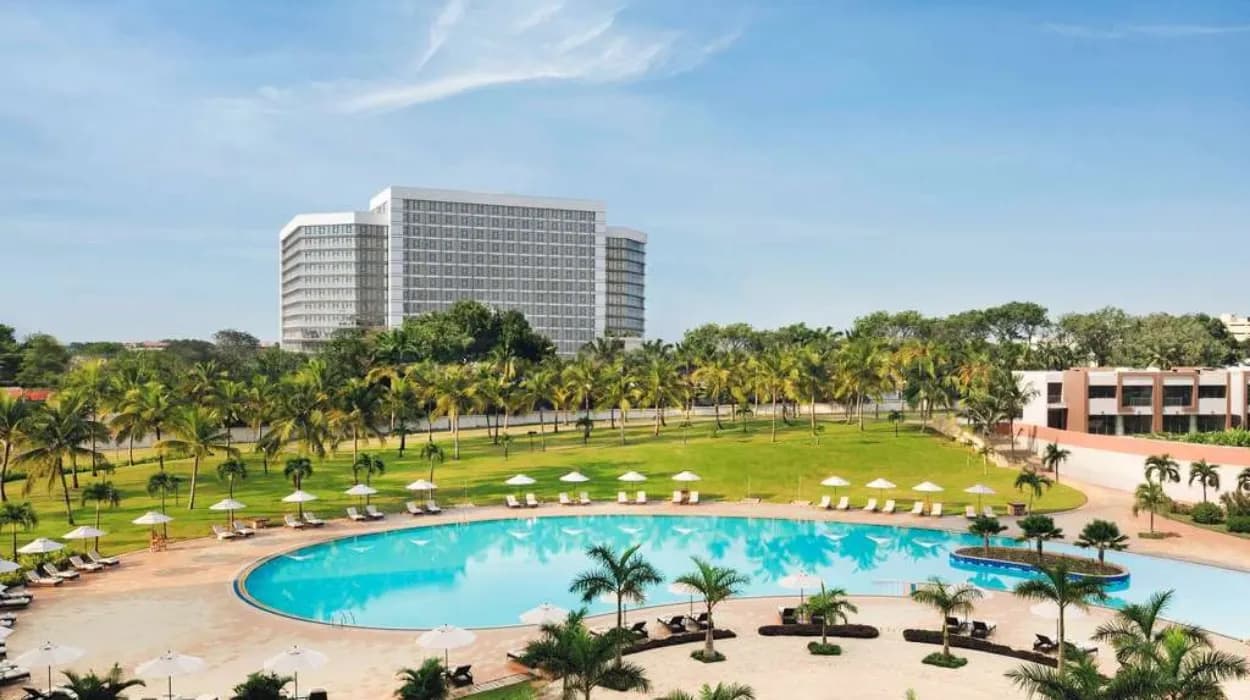Mövenpick Ambassador Hotel in Accra has launched the Green
Stay Initiative, pioneering sustainable hospitality practices in Ghana amidst
growing climate concerns. The initiative emphasises eco-conscious tourism and
calls for sector-wide collaboration involving government, businesses,
suppliers, and communities to create lasting environmental and economic
benefits.
Mövenpick Ambassador Hotel's Green Stay Initiative Launch
As reported by Emmanuel Tetteh of MyJoyOnline, the Mövenpick
Ambassador Hotel Accra launched its Green Stay Initiative to set a new standard
for sustainable hospitality in Ghana and West Africa. The launch event convened
stakeholders from government, business, and sustainability sectors united by a
vision for eco-conscious tourism and hospitality.
Isaac Okpoti Adjei, General Manager of Mövenpick Ambassador
Hotel Accra, underscored the need to move beyond sustainability as a buzzword
to an operational and moral imperative. He highlighted the idea of “conscious
luxury,” where guest comfort harmonises with environmental responsibility.
“Our guests no longer ask only for leisure and luxury; they
ask for experiences that are meaningful and sustainable,”
Mr Adjei stated
emphatically. The initiative incorporates energy-efficient lighting, smart
water systems, food waste reduction, and local sourcing as practical steps
already embedded in the hotel’s operations.
Sustainability Beyond Hotel Walls
Mr Adjei stressed the necessity for sustainability to
transcend the hotel premises, influencing design, procurement, workforce
training, and community engagement. He explained Mövenpick’s efforts to align
supply partners with international sustainability standards to foster circular
economies and carbon-conscious practices.
“Sustainability must not be limited to hotel walls. It must
shape how we design, build, procure, train, and engage — across our entire
value chain,” he declared.
Given Accor Group’s global footprint with over 5,700 hotels,
Mövenpick Accra is part of a larger corporate commitment where 88% of
properties have eliminated over half their single-use plastics, signalling a
global shift from wasteful habits.
Government Support and National Context
Kenneth Gilbert Adjei, Ghana's Minister for Works, Housing
and Water Resources, participated as Guest of Honour and praised Mövenpick’s
leadership in private sector sustainability aligned with national development
goals.
“This is not only about environmental compliance,” he
remarked,
“it is about innovation, competitiveness, and long-term value
creation in an increasingly sustainability-conscious global tourism market.”
The government’s RESET agenda includes tax incentives for
green technologies, technical support from agencies like the EPA and Energy
Commission, and facilitation of eco-friendly tourism investments through the
Ghana Investment Promotion Centre. Future plans encompass green building
standards for public infrastructure, renewable energy, waste-to-energy solutions,
and water recycling programmes.
Sector-Wide Call for Sustainable Transformation
In a press briefing, also reported by MyJoyOnline, Mr Adjei
positioned the Green Stay Initiative as a catalyst for broad industry change
and challenged the misconception that eco-consciousness conflicts with
hospitality.
“We believe that sustainability is at the core of
business... sustainability isn’t just an environmental obligation; it’s smart
business,”
he affirmed. He emphasised the importance of including energy, water,
and waste management in corporate strategies beyond hotels, advocating for
cross-industry participation.
The initiative includes public engagement and quarterly
workshops to build capacity within and outside the hospitality sector.
“Education is the first challenge,”
he said, underscoring the need for
collaboration between policymakers and the private sector to make
sustainability viable and attractive.
Environmental Challenges and Tourism Impact
Lydia Lamisi Akanvariba, Minister of State for Public Sector
Reforms speaking on behalf of the Tourism Ministry, highlighted Ghana’s urgent
environmental challenges impacting tourism. She pointed to coastal erosion in
Cape Coast and Keta, threats to Lake Bosomtwe’s ecosystem, and pressures on
Kakum and Mole forest reserves.
“The Green Stay Initiative is timely and essential,”
she
said,
“placing sustainability at the heart of tourism policy, planning, and
practice.”
Tourism contributed $4.8 billion to Ghana’s GDP in 2024,
making it a vital economic sector. Yet Ms Akanvariba cautioned that tourism
growth must not come at the expense of clean air, safe water, biodiversity, or
cultural heritage.
Mövenpick Accra’s Environmental Credentials and Guest
Experience
Mövenpick Ambassador Hotel Accra is eco-certified and
participates in the Green Globe programme, which assesses environmental,
community, cultural heritage, and local economic impacts. The hotel
incorporates a broad range of green practices:
- LED
lighting accounting for over 80% of on-site lighting
- Comprehensive
food waste and recycling policies
- Use of
biodegradable and reusable products
- Vegan
and vegetarian dining options with local sourcing
- Water-
and energy-saving smart systems
- Carbon
offset programmes representing at least 10% of carbon footprint annually
- Reinvestment
of at least 10% of profits into community and sustainability projects
Guests benefit from this "conscious luxury" model
in comfortable, eco-friendly rooms with amenities like rainfall showers and
eco-friendly toiletries. The hotel enjoys high guest ratings for cleanliness,
service, and cultural authenticity.
Mövenpick Ambassador Hotel Accra’s Green Stay Initiative
represents a pioneering step towards embedding sustainability in Ghana’s
hospitality sector amid mounting climate challenges. With strong leadership
from its General Manager Isaac Okpoti Adjei and government endorsements, it
sets a precedent for how luxury and eco-consciousness can coexist and create
shared value. The initiative’s call for collective action across businesses,
government, supply chains, and communities may define the future
competitiveness and ecological footprint of Ghana’s vital tourism industry.
This critical move foregrounds sustainability as not merely
compliance or marketing but as a strategic, transformational imperative crucial
to Ghana’s environmental health and economic prosperity in an era of global
climate urgency.

